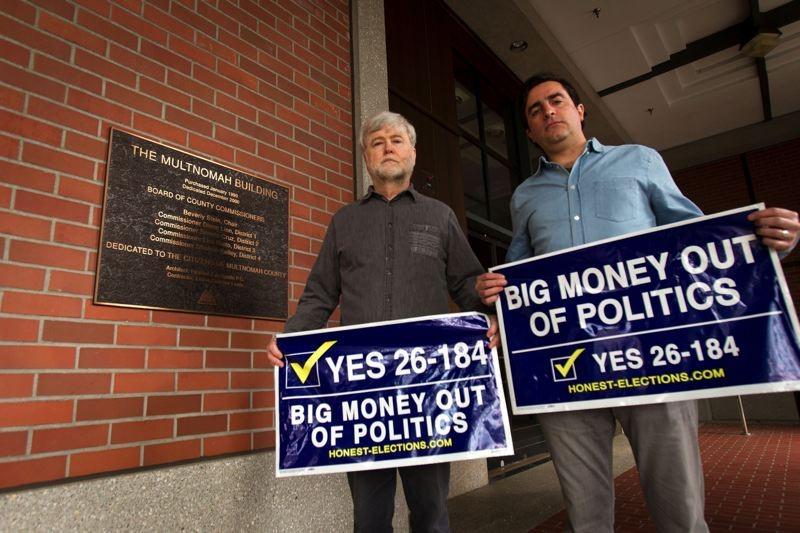
Oregon voters took part in a statewide election on November 6, electing dozens of new public officials and voting for several new ballot measures. While most mainstream media coverage centered around statewide measures 102 through 106, a local Multnomah County measure, Measure 26-200, proved to be one of the most peculiar and entertaining of the election. 26-200 aimed to limit campaign contributions received by candidates to no more than $500 from individuals and political committees.
In the 2018 Oregon Voters’ Pamphlet, Dan Meek, a private lawyer, published eight arguments for Measure 26-200. He also published two against the measure. The first satirical argument focused on the attitude of the one percent. “These funders are truly the elite leaders of America. They have the best educations, the nicest houses, and the biggest yachts. They know best who should serve in public office.” it says. The second argument made use of the campaign finance charges against Michael Cohen in the 2016 Trump campaign, saying, “We extend a hearty welcome to Michael Cohen and urge him to relocate to Oregon, where his skills at financial manipulation will be appreciated — and legal!”
This is not the first time Meek has backed a bill: in 2016, he was a proponent of Measure 26-184, nicknamed “Big Money Out of Politics.” 26-184 was essentially the same as the newly proposed 26-200, limiting campaign contributions at the county level and requiring taglines in advertisements to promote transparency.
This is also not the first time that Meek and other proponents created parodial counter positions. “We did the same thing with one argument in 2016 for Measure 26-184,” explains Meek. “It was the only thing that got TV coverage–KGW did a little story about it. So we decided to double down and do two parody arguments.” These two arguments set 26-200 apart from any other ballot measure. They also totaled eight hundred dollars in publishing fees, but Meek felt the cost was well worth it. “They seemed to be effective, so we felt it was justified. They also got us TV coverage again, this time with KATU.”
Although the measure passed overwhelmingly, with over 87% of voters giving a “yes” vote, 26-200 will be put under immediate judicial scrutiny; Oregon state constitution bars any limitation on campaign contributions. For this reason, late in 2017, 26-184 was deemed unconstitutional by the Oregon Supreme Court. This thirty year old loophole in regulation has proven to be problematic in the past, where candidates with wealthy ties have had superior resources and exposure to voters. In 2012, the winner of Portland mayorship, Charlie Hales, spent 1.7 million dollars during his campaign, with donations ranging in size from $500 to $60000. Thus the aim of Measure 26-200 would not be to immediately change the law, but to draw attention to an outdated election system. “People are fed up with election outcomes being determined by big money,” says Meek. Property developers and timber companies with the ability to spend tens of thousands of dollars on political advertisements frequently drown out the voice of the public, but the 87% backing 26-200 symbolizes a resounding cry for change.

































